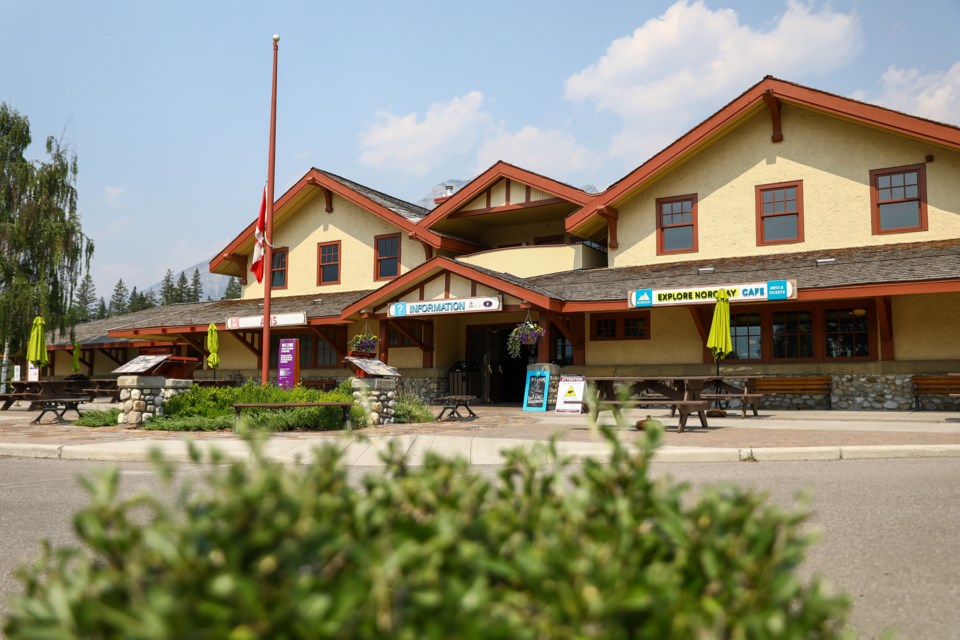BANFF – A $1.5 billion plan for the return of passenger railway from Calgary to Banff is on track to be potentially up and running as early as 2025.
Banff-based Liricon Capital Ltd. has partnered with Quebec-based Plenary Americas to submit an updated proposal to Alberta Transportation, Invest Alberta Corporation and the Canada Infrastructure Bank (CIB) to move to the design phase.
The proposal is to deliver a passenger train service from Calgary International Airport to downtown Calgary, which could include an express service every 15 minutes, and on to the mountains in Canmore and Banff by 2025.
Jan Waterous, managing partner of Liricon, said her family is thrilled that Plenary Americas has joined as co-developers of the Calgary-Banff railway project, which has the potential to be hydrogen-powered.
“We now have a world-class development and engineering team, which allows our ongoing partnership with the government of Alberta and Canada Infrastructure Bank to advance the project to its fourth phase – design – and positions the project for success in achieving its fifth phase – construction – prior to operating services,” she said.
The proposal is structured as a public-private-partnership (P3), which contemplates financing from private and institutional capital and the Canada Infrastructure Bank.
The aim is to operate on a new, dedicated passenger line built within the existing Canadian Pacific Railway freight corridor.
Under the proposal, trains would run at high frequency between seven stations – Calgary Airport, Calgary Downtown, Calgary Keith, Cochrane, Morley (Stoney Nakoda), Canmore and Banff.
At this stage of the proposal, net ticket costs from Calgary to Banff for Albertans are estimated to be about $20.
Under the plan, the P3 and Canada Infrastructure Bank will contribute all of the $1.5 billion in capital costs and operate the system.
Liricon’s and Plenary’s proposal seeks an Alberta government payment of $30 million per year for the project. Under this pitch, the government payments would not begin until construction is complete in 2025 and are contingent on the performance of the train.
Their proposal contemplates private capital and CIB taking the risk that train ticket fare revenues will cover its operating and maintenance costs and more than half of its capital costs.
The press release notes the Alberta government annual performance payment is covering less than half of the project capital costs and would be approximately 20 per cent of the equivalent cost of the province developing the project on its own.
“The proposal is based on conservative estimates of capturing less than 25 per cent of visitors to Banff National Park,” states the press release.
During the design phase, Liricon and Plenary plan to work with the Alberta government and engage with Indigenous communities in the Bow Valley about the project, as well as consultations with municipalities.
Canmore Mayor Sean Krausert said regular passenger rail service from Calgary promises benefits that align with a number of the Town’s priorities.
“Just to name a few, these include lowering GHG emissions, reducing traffic congestion, and increasing labour mobility to address staffing shortages,” he said in the press release. “I expect the train will be well used by visitors and residents alike”
Banff Mayor Corrie DiManno said the Town of Banff is excited to see progress on this proposal to bring back passenger rail.
She said Banff needs convenient and affordable mass transit between Calgary and Banff as the solution to three priorities – reducing traffic congestion, cutting greenhouse gas emissions, and expanding a commuter service for the Bow Valley workforce.
“It would be wonderful to have people arrive without a personal vehicle, walk or cycle around town, then use our transit system to go anywhere in the park,” she said in the news release.
“As a town that strives to be a model environmental community, we also look forward to the possibility of a hydrogen-powered train leading the way for low-carbon transit.”
Liricon entered into a memorandum of understanding with CP Rail in April 2021 to lease a portion of the railway giant’s corridor running 150-kilometres between the Calgary Airport and Banff to be able to build a dedicated line.




